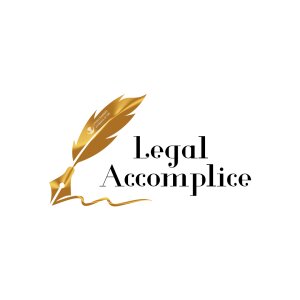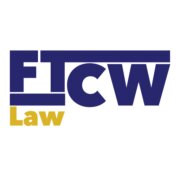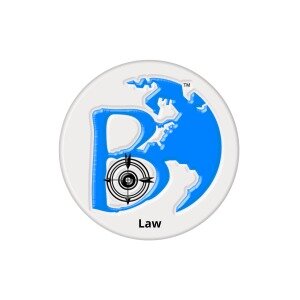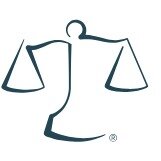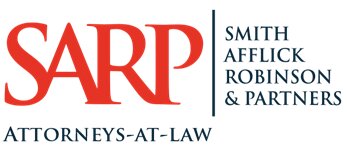Best Native People Lawyers in Jamaica
Share your needs with us, get contacted by law firms.
Free. Takes 2 min.
Or refine your search by selecting a city:
List of the best lawyers in Jamaica
About Native People Law in Jamaica
Native People in Jamaica, also known as the Taino people, are the indigenous people of the island. Despite centuries of colonization and displacement, efforts are being made to preserve and protect their rights, culture, and heritage.
Why You May Need a Lawyer
You may need a lawyer for various reasons related to Native People in Jamaica, including land disputes, cultural preservation issues, discrimination, and seeking recognition of indigenous rights.
Local Laws Overview
Key aspects of local laws relevant to Native People in Jamaica include the Indigenous Peoples (Recognition, Protection and Preservation) Act, which aims to protect and promote the rights of indigenous peoples on the island.
Frequently Asked Questions
1. Are the Taino people recognized as indigenous in Jamaica?
Yes, the Taino people are recognized as indigenous in Jamaica under the Indigenous Peoples (Recognition, Protection and Preservation) Act.
2. Can Taino people claim land rights in Jamaica?
Yes, Taino people have the right to claim land rights in Jamaica under the Indigenous Peoples (Recognition, Protection and Preservation) Act.
3. Can Taino people practice their culture and traditions freely in Jamaica?
Yes, Taino people have the right to practice their culture and traditions freely in Jamaica under the Indigenous Peoples (Recognition, Protection and Preservation) Act.
4. What legal protections are in place for Taino people in Jamaica?
Legal protections for Taino people in Jamaica include the Indigenous Peoples (Recognition, Protection and Preservation) Act, which safeguards their rights and heritage.
5. Can Taino people seek legal assistance for discrimination cases in Jamaica?
Yes, Taino people can seek legal assistance for discrimination cases in Jamaica, as discrimination on the basis of indigenous identity is prohibited by law.
6. Are there specific legal requirements for Taino people to prove their indigenous identity in Jamaica?
Yes, Taino people may need to provide evidence of their indigenous identity, such as genealogical records or community recognition, to access certain rights and protections.
7. How can Taino people access legal aid in Jamaica?
Taino people can access legal aid in Jamaica through government-funded programs, indigenous rights organizations, or by hiring a private lawyer with experience in Native People law.
8. Can Taino people form organizations to advocate for their rights in Jamaica?
Yes, Taino people can form organizations to advocate for their rights in Jamaica, and they may receive support from governmental bodies or non-profit groups focused on indigenous issues.
9. Are there restrictions on Taino people's land use or cultural practices in Jamaica?
There may be restrictions on Taino people's land use or cultural practices in Jamaica due to conservation laws or development projects, but these must respect indigenous rights and consultation processes.
10. What legal remedies are available to Taino people in case of rights violations in Jamaica?
Taino people can seek legal remedies for rights violations in Jamaica through the courts, government bodies, or international human rights mechanisms, depending on the nature and scope of the violation.
Additional Resources
For more information on Native People in Jamaica and legal assistance, you can contact the Jamaica Council for Indigenous Peoples or the Ministry of Culture, Gender, Entertainment and Sport.
Next Steps
If you require legal assistance regarding Native People in Jamaica, it is advisable to reach out to a lawyer specializing in indigenous rights or contact relevant organizations and governmental bodies for support and guidance.
Lawzana helps you find the best lawyers and law firms in Jamaica through a curated and pre-screened list of qualified legal professionals. Our platform offers rankings and detailed profiles of attorneys and law firms, allowing you to compare based on practice areas, including Native People, experience, and client feedback.
Each profile includes a description of the firm's areas of practice, client reviews, team members and partners, year of establishment, spoken languages, office locations, contact information, social media presence, and any published articles or resources. Most firms on our platform speak English and are experienced in both local and international legal matters.
Get a quote from top-rated law firms in Jamaica — quickly, securely, and without unnecessary hassle.
Disclaimer:
The information provided on this page is for general informational purposes only and does not constitute legal advice. While we strive to ensure the accuracy and relevance of the content, legal information may change over time, and interpretations of the law can vary. You should always consult with a qualified legal professional for advice specific to your situation.
We disclaim all liability for actions taken or not taken based on the content of this page. If you believe any information is incorrect or outdated, please contact us, and we will review and update it where appropriate.
Browse native people law firms by city in Jamaica
Refine your search by selecting a city.



